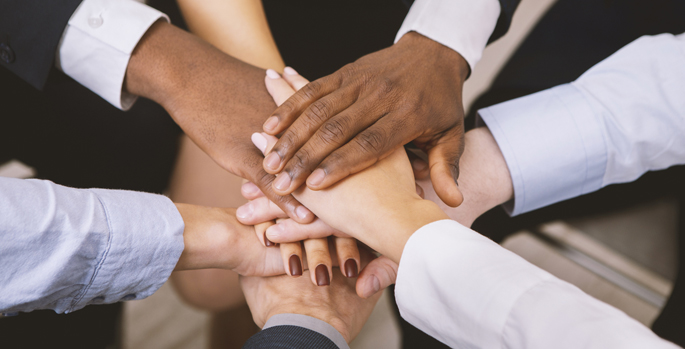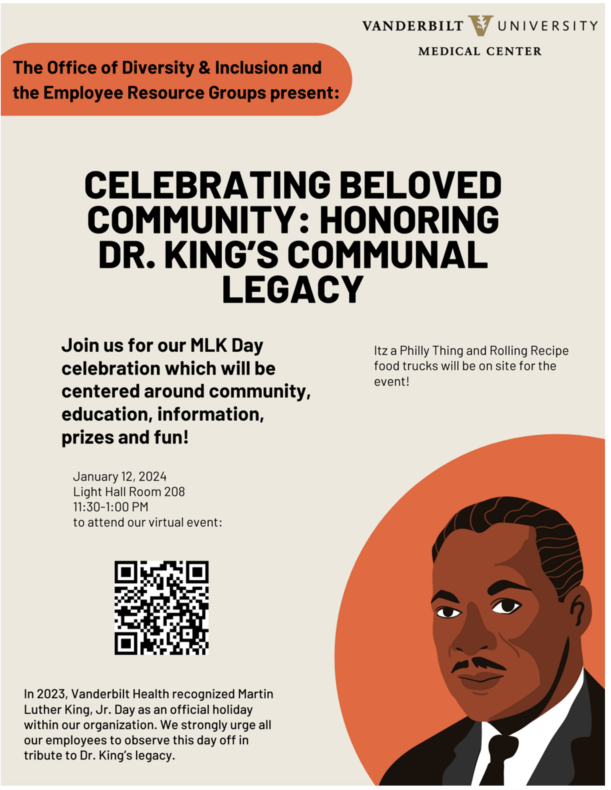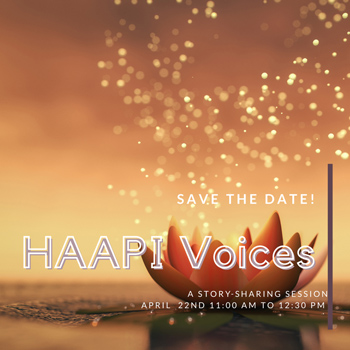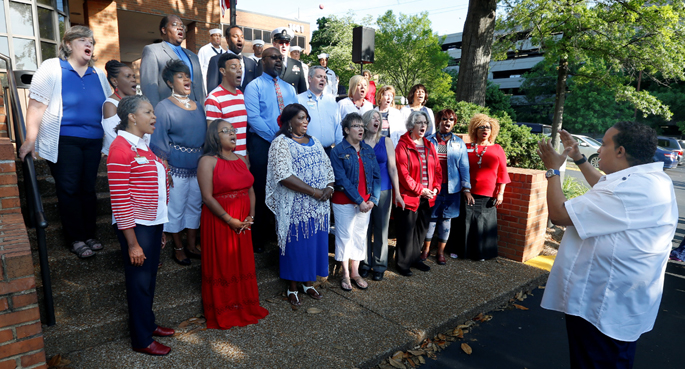
by Jill Clendening
As part of an ongoing commitment to foster inclusion and celebrate diversity at Vanderbilt University Medical Center, two new Employee Resource Groups have recently been formed, bringing the total to six. All employees are invited to join these groups and participate in their activities.
Employee resource groups, or ERGs, are employee identity- or experience-based organizations whose goal is to foster a diverse, inclusive workplace. Also known as affinity or network groups, ERGs are intended to build community, provide support and contribute to employees’ personal and professional development. ERGs can also assist with organizational challenges such as understanding customer needs, enhancing employee engagement and strengthening recruiting and retention efforts.
One of the Medical Center’s Strategic Directions is “Make Diversity and Inclusion Intentional,” and the ERGs directly support that mission.
“We’re 27,000 strong now, and we’re spread out all over the Medical Center, throughout Nashville and beyond,” said André Churchwell, MD, Chief Diversity Officer at VUMC and Vice Chancellor of Equity, Diversity and Inclusion at Vanderbilt University. “We felt if we could pull our diverse staff members together into a group where they can connect, learn from each other about how to thrive at VUMC, and then find ways to help employees grow both through leadership and through other projects, we can then create a true sense of community within the larger VUMC structure.”
ERGs have been around for decades, and many corporations such as Dell, Dollar General and Google have long offered them for their workforce.
“In 2017, Dr. Churchwell held employee listening sessions across the organization, and we kept hearing that employees felt disconnected,” said Janet Rachel, diversity and inclusion consultant for VUMC. “They didn’t feel they had a forum to have meaningful interactions to network and establish supportive relationships with individuals who were from their own demographic group.
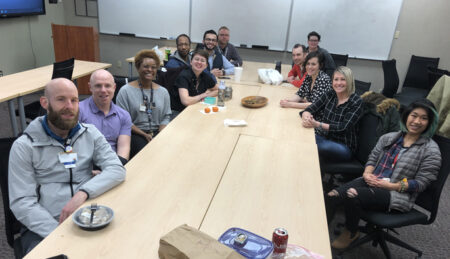
“I found it interesting that we could have people here at the Medical Center for 30 years, and they still didn’t know each other. We started looking at what we could do to address this need, and forming Employee Resource Groups was one answer.”
The LGBTQ ERG, also known as P.R.I.D.E., was established in 2018, followed by a Veterans ERG, an African American ERG, and a Hispanic-Latino ERG (also known as Latinos Unidos en Vanderbilt) formed in 2019. Recently launched ERGs include the HAAPI: Healthcare Alliance of Asian-Americans and Pacific Islanders ERG and the Disability ERG. Churchwell also points to the employee choir, the United Voices of Vanderbilt, created in 2017 as an example of an ERG with diverse membership based on the unifying concept of music.
“Resource” in the name is intentional, Rachel said, as ERGs serve as a resource for members as well as for the community and their employer. An example is when the VUMC COVID-19 Command Center contacted Latinos Unidos en Vanderbilt (LUV) to gain a better understanding of issues faced by the Hispanic community and how to best reach this population with critical information.
Allies are also an important membership component of ERGs. Through increased interactions, dialogue and the development of authentic relationships, ERGs can help reduce unconscious bias and microaggressions, particularly when all races, genders and ethnicities are included and engaged around a shared interest, Rachel said.
“That’s really where our central ethos is about this,” agreed Churchwell. “It’s not exclusionary; it’s inclusionary.”
ERG activities have included programming to recognize and celebrate heritage months and holidays such as PRIDE, Black History, Hispanic Heritage, Disability Awareness and Veterans Day. In March when the COVID-19 pandemic hit, in-person events were postponed or moved to a video format, said Del Ray Zimmerman, director of the Office for Diversity Affairs and LGBTQ Health.
For example, the African American ERG created Coffee Klatch, a creative activity which produced “Being the Only One in the Room,” a series of virtual meetings to provide members an opportunity to share their professional and life experiences.
The Disability ERG, led by co-directors Megan Hart and Elise McMillan, JD, both of the Vanderbilt Kennedy Center, launched a lunchtime program on Oct. 29 that featured a guest speaker and a panel discussion led by employees.
“People with disabilities are our largest and most inclusive minority group — all ages, genders, religions, ethnicities, sexual orientations and socioeconomic levels,” said Hart. “When addressing the importance of diversity and inclusion in the workforce, it is crucial that people with disabilities are included in all conversations and efforts. It is also important for employees with disabilities to have access to job opportunities and support needed to succeed.”
The HAAPI: Healthcare Alliance of Asian-Americans and Pacific Islanders ERG is hosting a virtual launch event on Nov. 18, 11:30 a.m.-12:30 p.m. The ERG is co-directed by Joey Manansala from HealthIT, Daniel Nanto from VUMC IT and Maria Melton from Learning and Development, and they are hopeful that as the group celebrates Asian and Pacific Islander heritage, it can also help unify all cultures.
“ERGs are a way to accomplish what I think this country needs, which is to bring different cultures together so we can learn and appreciate each other’s backgrounds and traditions,” Melton said.
“I want people to feel welcome to join because that’s how you break down walls. It’s about thinking beyond whether people are in or out, or if you agree or disagree. We’re all human beings. I really hope that this is an opportunity for a rainbow of people to come together and appreciate each other.”
More information about VUMC’s ERGs, including contacts, membership links and upcoming events is at https://www.vumc.org/Diversity-and-Inclusion/54885.













